
Policy Briefs
SALURBAL policy briefs guide health policy in Latin American cities.
Latest Policy Briefs
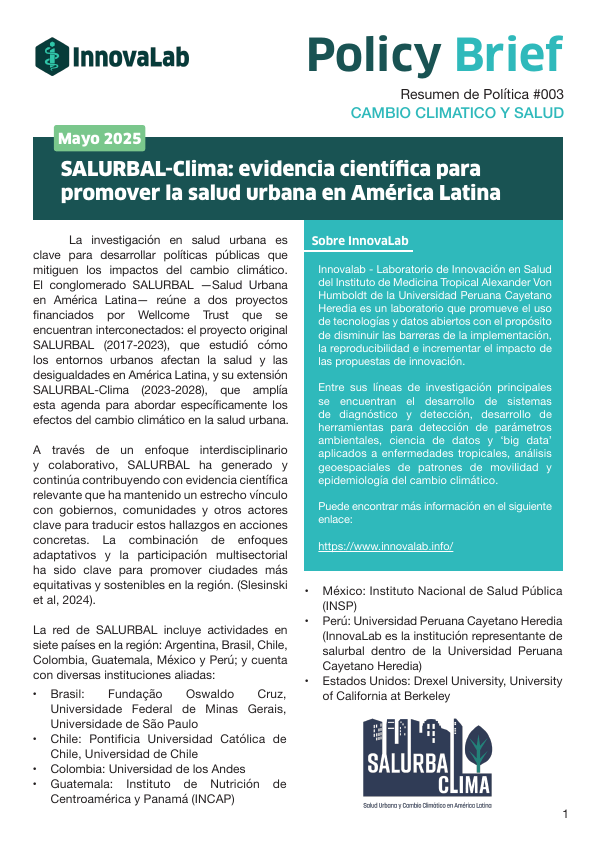
This report, in Spanish, highlights how the SALURBAL-Climate initiative promotes urban policies based on scientific evidence—through an interdisciplinary, collaborative, and multinational approach—to mitigate the effects of climate change on urban health, strengthening cooperation between research, governments, and communities to build more resilient, equitable, and sustainable cities.
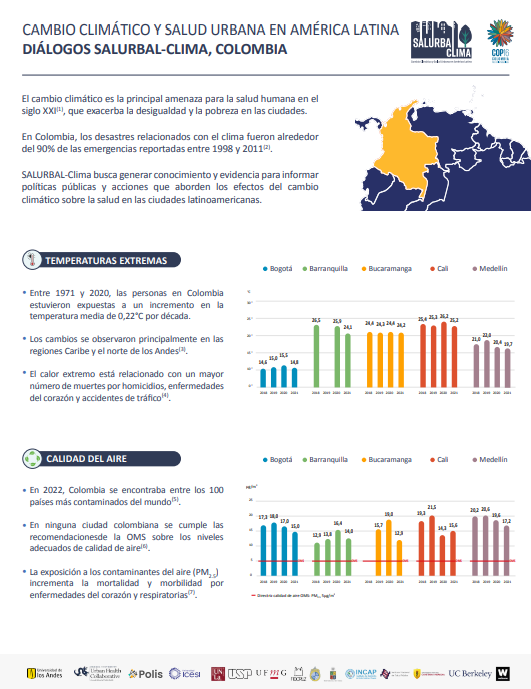
Fact Sheet presented during COP16 of Biodiversity, in Cali Colombia, with SALURBAL data from 5 cities in colombia, about extreme temperatures, air quality, wilfires, green areas, floods, and dengue.
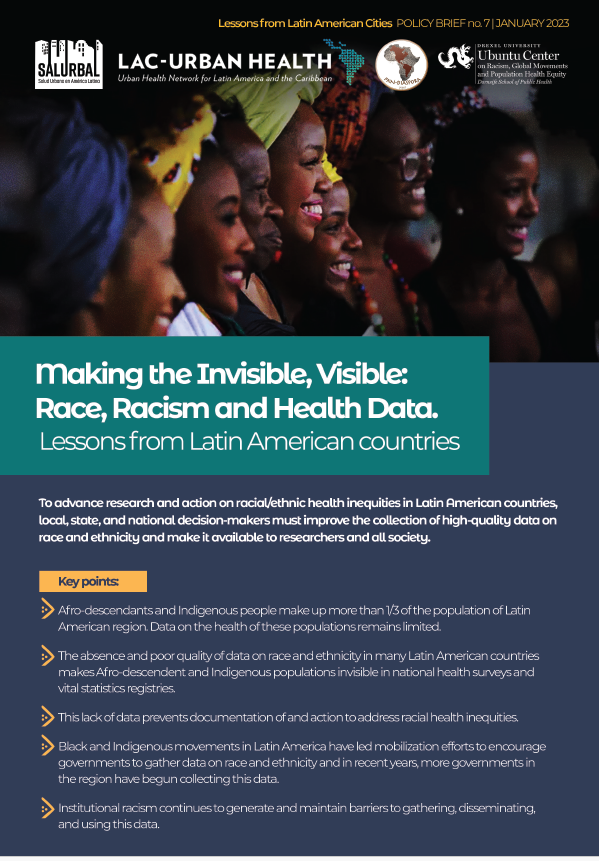
The demand for information about Afro-descendant and Indigenous populations and their living conditions—driven in large part by social movements—has been a growing and recurring issue in Latin America. Though the region still has limitations in the availability of reliable data, important efforts have taken place to advance this agenda. This brief outlines lessons learned from Latin American countries. To advance research and action on racial/ethnic health inequities in Latin American countries, local, state, and national decision-makers must improve the collection of high-quality data on race and ethnicity and make it available to researchers and all society.
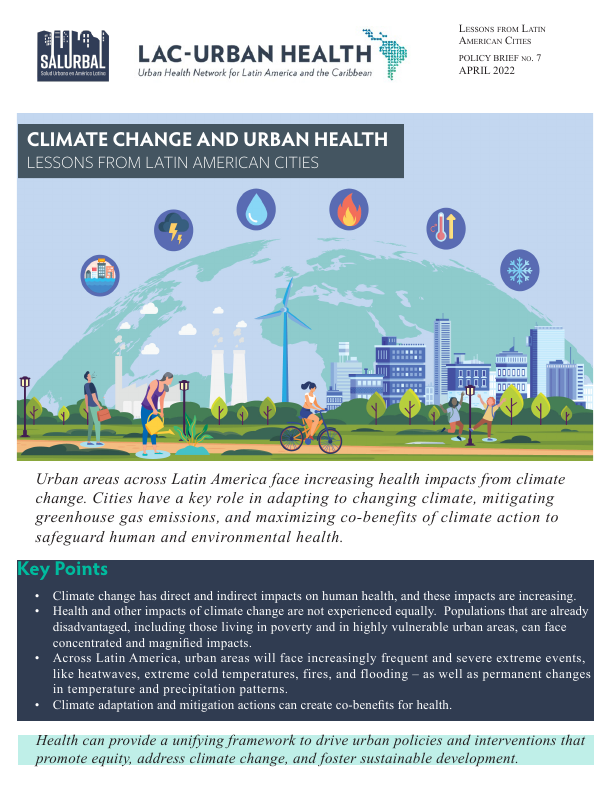
Urban areas across Latin America face increasing health impacts from climate change. This brief describes what we know about the current and future impacts of climate change on health and health equity, what some cities in Latin America are doing to maximize the co-benefits of climate action, and what urban policymakers and public health researchers can do to support effective urban policies and interventions.
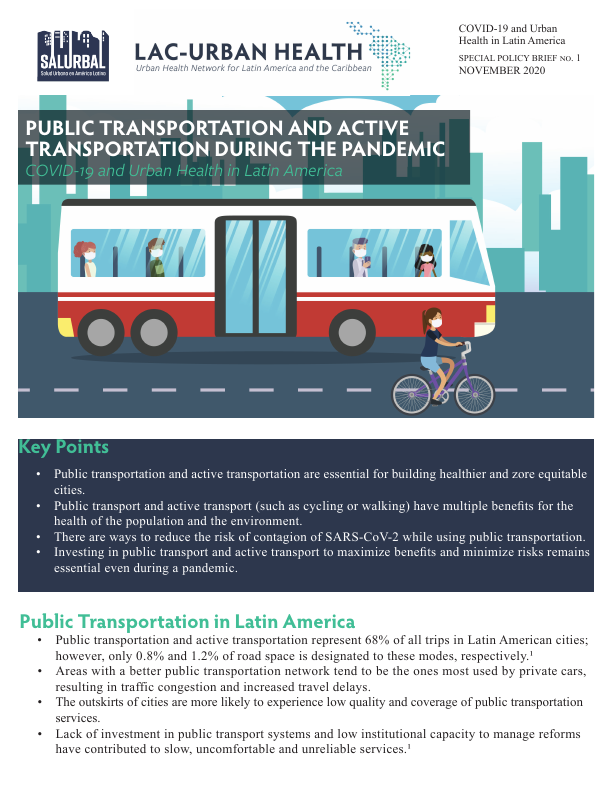
El transporte público colectivo y el transporte activo en tiempos de pandemia | outlines key recommendations for adapting and supporting public mass transit and active transportation systems to promote safe, healthy, and equitable mobility in the context of the COVID-19 pandemic. This is the first brief in SALURBAL’s new mini-series, COVID-19 and Urban Health in Latin America.
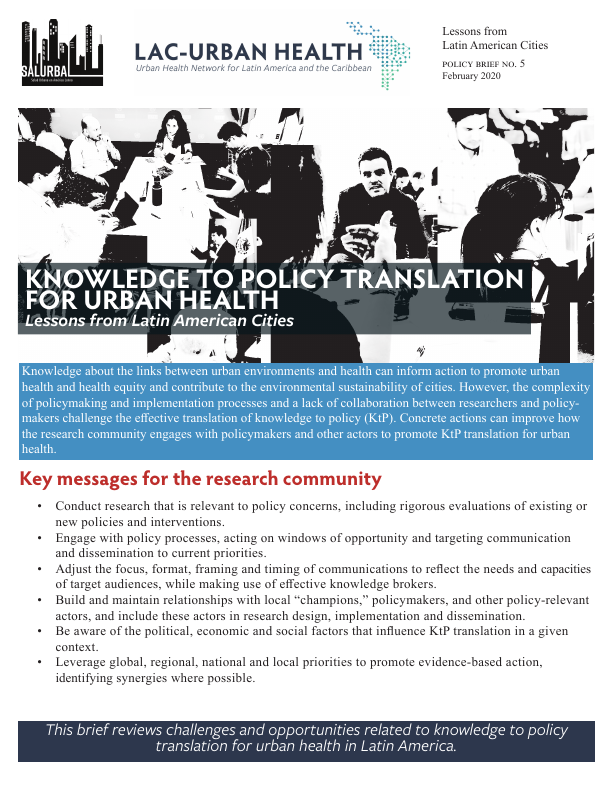
How can urban health research drive the development of evidence-based policies? | Knowledge to Policy Translation for Urban Health: Lessons from Latin American Cities | explores how knowledge about the links between urban environments and health can inform action to promote urban health and health equity and contribute to environmental sustainability.The document reviews challenges and opportunities related to knowledge to policy translation for urban health in Latin America and presents concrete actions for improving how the research community engages with policymakers and other actors.
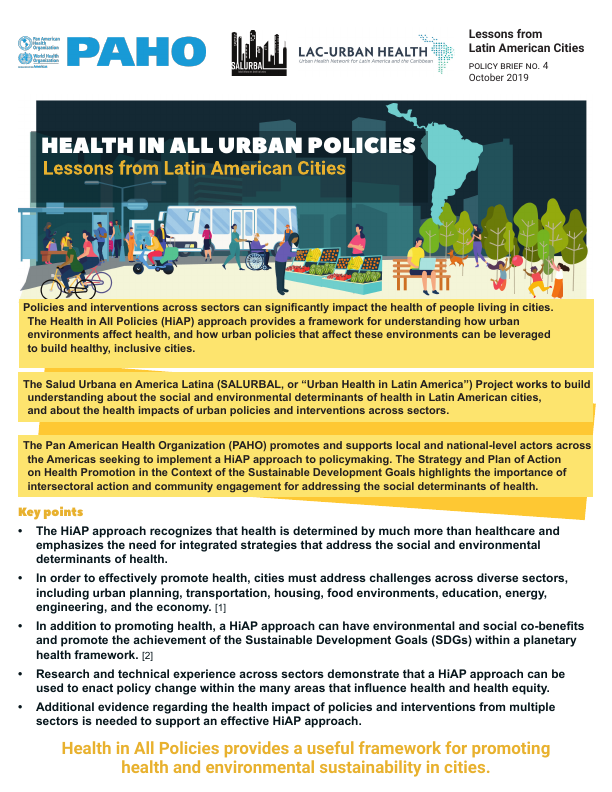
Health in All Urban Policies: Lessons from Latin American Cities | outlines the core principles of a Health in All Policies (HiAP) approach to understanding how urban environments affect health, and how urban policies and interventions across sectors can impact the health of people living in cities. This policy brief was co-produced by the SALURBAL project in collaboration with the Pan American Health Organization (PAHO) and describes initiatives by each organization to advance HiAP implementation. The 12-page booklet provides an introduction to key concepts related to HiAP, research and evidence to support this approach, and recommendations for policymakers and for the academic community for leveraging action across sectors to promote health, equity, and environmental sustainability.
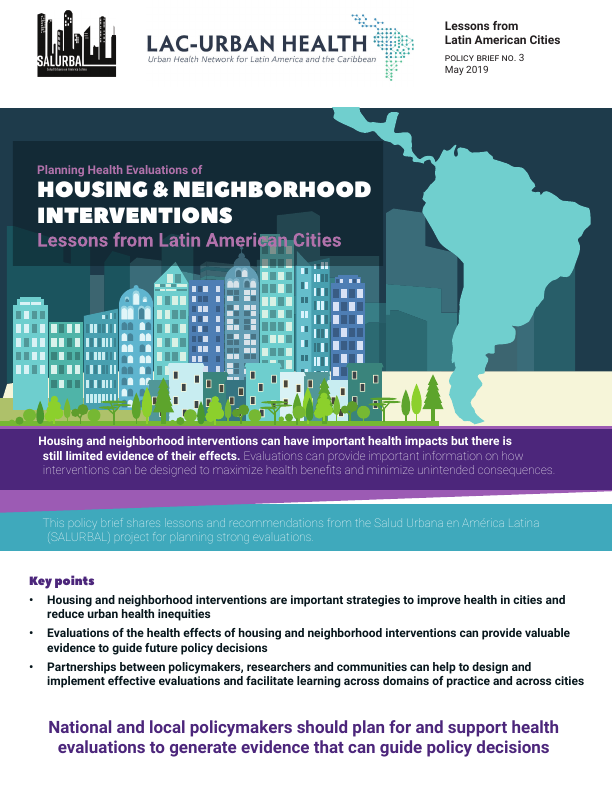
Planning Health Evaluations of Housing and Neighborhood Interventions: Lessons from Latin America | discusses opportunities to integrate health evaluations into the design and implementation of urban policies. Housing and neighborhood interventions can be important interventions that deliver packaged benefits to improve urban health and well-being, but more evidence is needed regarding their effects under different conditions and the pathways underlying these effects to inform policy changes. The policy brief details potential health effects and evaluation designs, recommendations for intersectoral planning, and shares three case studies of current evaluations from the SALURBAL project.
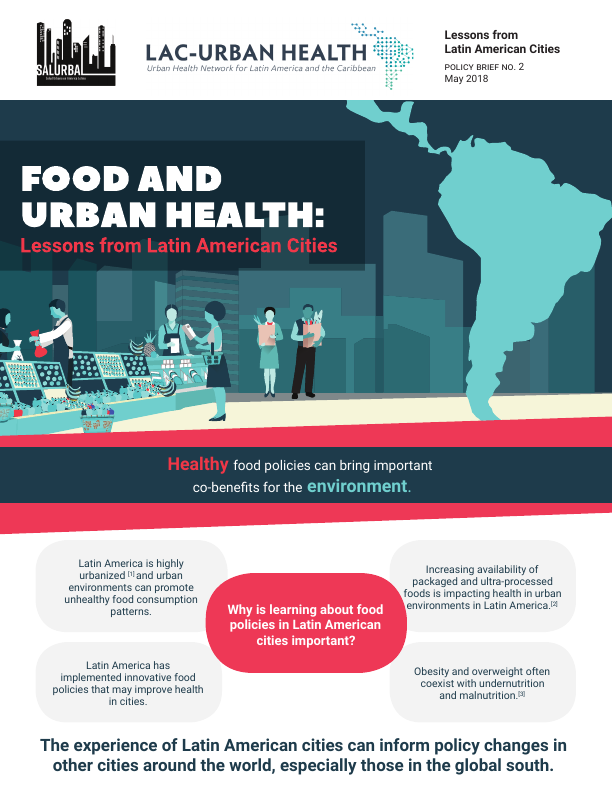
Food and Urban Health: Lessons from Latin America | presents leading challenges in urban nutrition in the context of demographic changes, poverty, and markets and regulations. The policy brief describes mechanisms that can be implemented to affect food-related behaviors and consumption, and highlights innovative policies, laws, and programs from the region. Recommendations build upon best regional practices and suggest integrated and intersectoral responses.
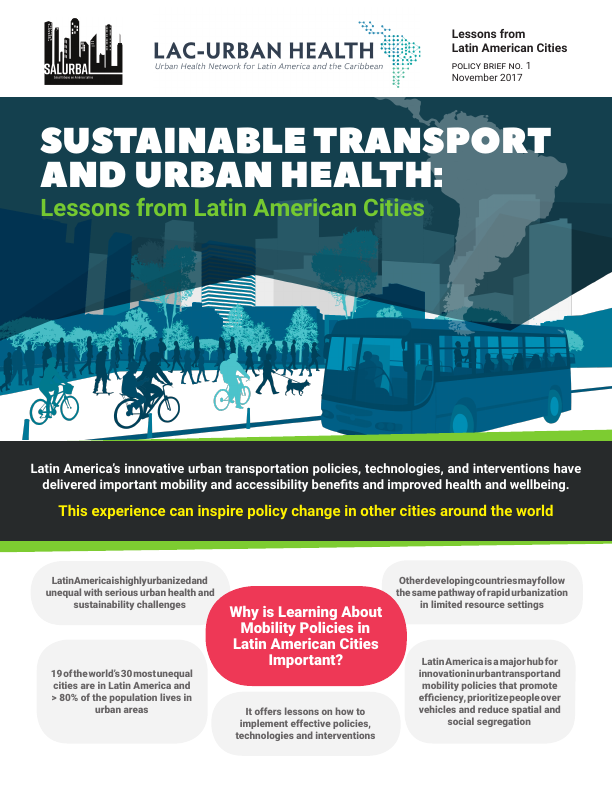
Sustainable Transport and Urban Health: Lessons from Latin America | explores strategies and interventions from throughout the region that support active transport and mobility in cities. The policy brief gives an overview of the key areas of transportation policies, regional trends, case studies of policies in major cities, and discusses the contributions of Latin America to global efforts in urban policies and health.